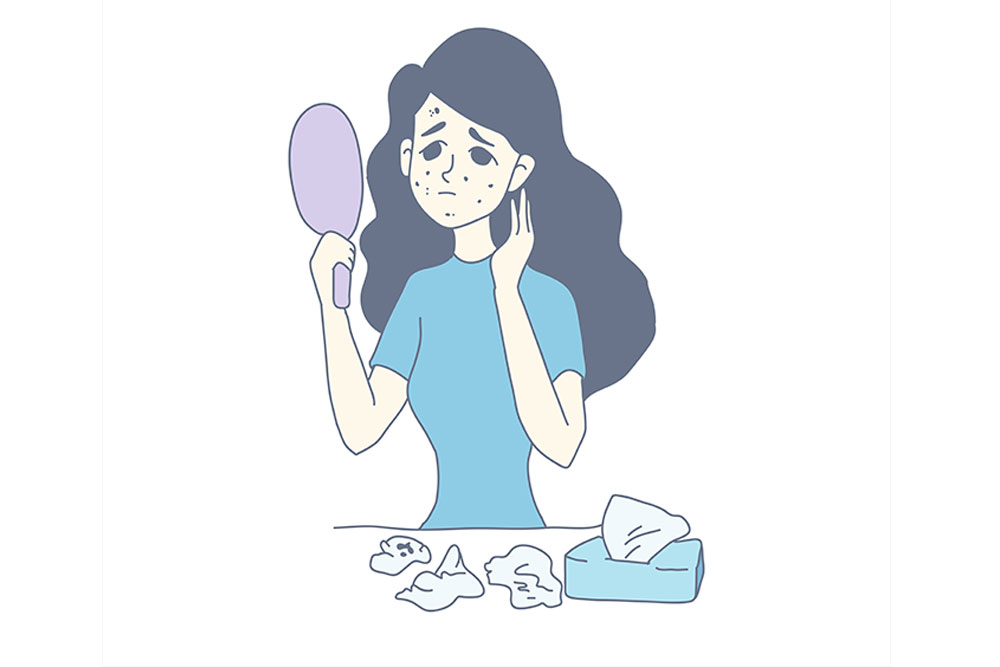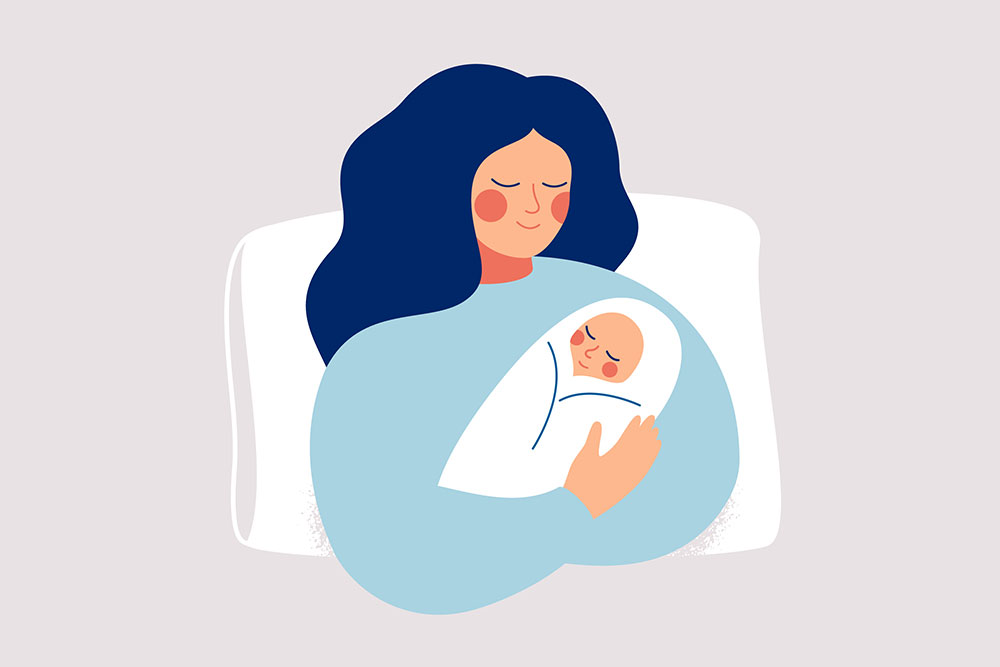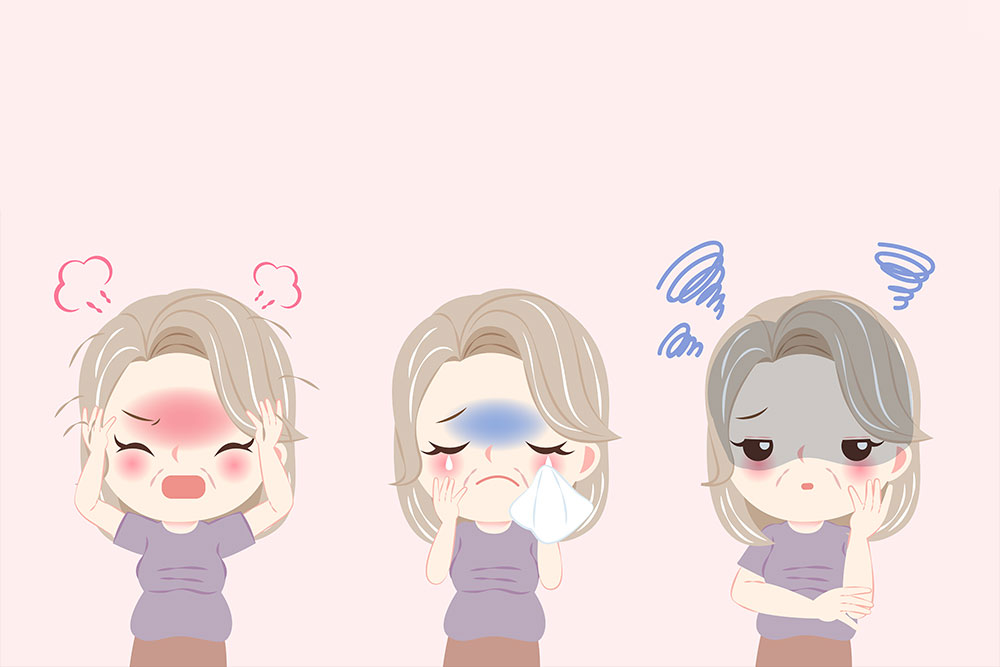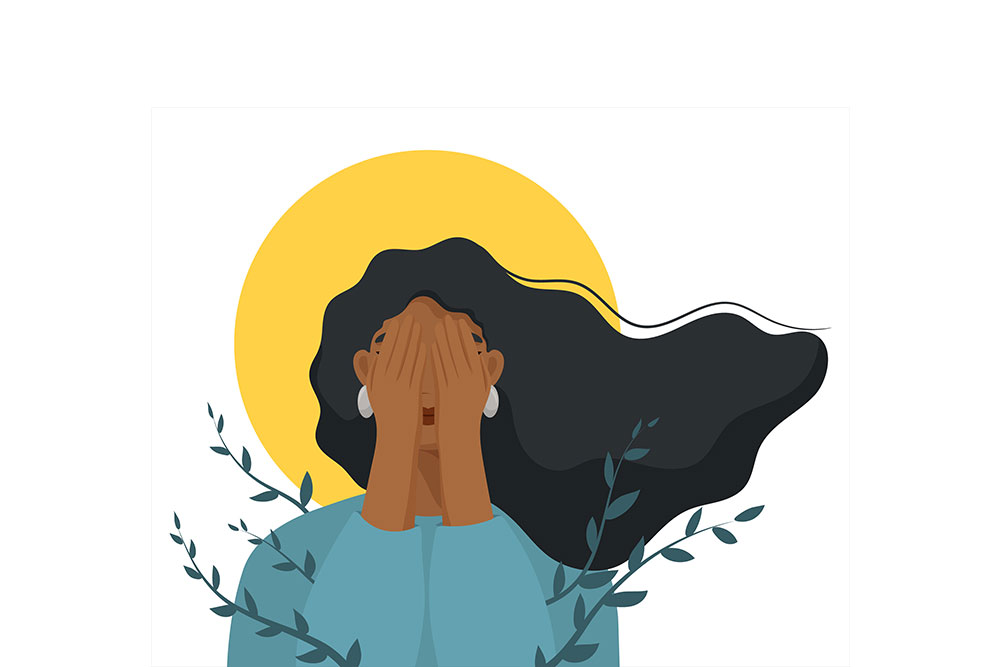Mental health, as we understand it today, is a term used to describe a person’s emotional and psychological well-being. Every human being’s mental health is comprised of very different aspects, so, each of us is likely to face very different mental health issues and illnesses. However, women tend to be more susceptible to certain types of mental health issues as compared to men.
Gender-based differences in mental health
The World Health Organization (WHO) says that gender-specific risk factors that disproportionately affect women include gender-based violence, socio-economic disadvantage, low income and income inequality, low or subordinate social status, and the unremitting responsibility to care for others. These risk factors expose women to correspondingly high susceptibility to depression, anxiety, and post-traumatic stress disorder (PTSD), especially due to sexual abuse and violence.
The National Institute of Mental Health (NIMH), which is the US’ federal agency for research on mental health, reveals that researchers are only now beginning to understand how biological and psychosocial factors impact the mental health of men and women differently. The NIMH says that women are also more likely to experience symptoms of mental disorders at times of hormone change and hormone imbalance—a factor that is unique to women throughout their lives.
For example, every woman goes through major hormonal changes when they first start menstruating, during pregnancy, and during and after menopause—and this is apart from the hormonal changes that affect women who suffer from thyroid dysfunctions (hyperthyroid or hypothyroid) and other hormone-related issues like polycystic ovarian syndrome (PCOS), fibroids, endometriosis, etc. So, being aware of these gender-specific differences in vulnerability to mental health issues is very important for every woman.

Indian women and mental health
In a 2015 study published in the Indian Journal of Psychiatry, the specific problems faced by Indian women when it comes to mental health are explained very well. The study reveals that women have a higher tendency of internalising mental health disorders, while men show a higher tendency of externalising the same. It shows that Indian girls from nuclear families and women married at a very young age are at a higher risk of attempted suicide and self-harm. Since around two-thirds of married women in India are victims of domestic violence, it adds to the burden of issues like PTSD, depression, and suicide.
Add to this the fact that mental health resources aren’t easily available or accessible to women—and that getting help or openly talking about mental health are still taboos in Indian society—and the already heavy burden of mental health problems among women only increases in magnitude. Experts and activists in India are constantly calling for more concerted efforts at social, political, economic, and legal levels to make women more aware of their risks, and to provide better access to mental healthcare facilities and resources.
Stages of a woman’s life
Biologically speaking, women go through major hormonal changes during a number of stages of life. These changes in hormones, which are accompanied by physical changes, also affect a woman’s mental wellness. Proper attention to health parameters at these stages is therefore crucial to prevent or manage mental health issues. The following are the stages during which women should take extra care.

Puberty and menarche
Menarche is the age at which a girl gets her first period. The first menstrual cycle is accompanied with bodily changes like the development of breasts, pubic hair and hair growth in the armpits. Every girl experiences different changes during menarche—some may gain weight, while others might lose fat and develop muscle tone. While everyone talks about “raging hormones” during the teenage years, its implications are often neglected. Girls at this age are susceptible to developing self-esteem issues, body dysmorphic disorder, anorexia, and bulimia if they are not guided through the bodily changes properly. This is why consulting a gynaecologist, following a routine of exercise and a balanced diet is key at this developmental stage.

Pregnancy
While many know about postpartum depression, the fact that a woman goes through major hormonal and physical changes during the entire gestational period known as pregnancy is often ignored or pushed to the back of the mind. From mood swings and weight gain to stretch marks and acne breakouts, women go through a lot because their oestrogen levels are high and their body is pumping more blood while supporting another life growing inside. Apart from following a nutritious diet and getting light exercise, accessing nutritional supplements for folate, iron and vitamins are vital. Doing a regular mental check and ensuring a woman feels supported during pregnancy is equally important.

Post-pregnancy
If the hormone levels shoot up and stay up during pregnancy, they get back to normal in the weeks and months following delivery. But this isn’t the only reason why women are susceptible to postpartum depression. With the baby finally here, the changes in a woman’s lifestyle become very apparent. You need to feel supported and cared for when facing such an immense life change, so be patient while adapting to the changes and get help from partners, family, friends, and medical professionals during this stage. Keeping up with post-pregnancy nutritional demands, getting plenty of exercise, and giving yourself the time to recover and get used to the changes is very important.

Perimenopause and menopause
In the years leading up to menopause, also known as perimenopause, the oestrogen levels may fluctuate and lead to infrequent periods and other problems. This is also the period of a woman’s life when other factors like bone density and cognition may also affect her general well-being. Many women also deal with empty nest syndrome during the same time, which adds to the psychological burden. Nutritional and emotional support can play an equally important role during this stage of life. In fact, if guided properly, care during this stage can set any woman up for her old age and help prevent diseases later—which is why attention is crucial at this point in time.

Reproductive problems and mental health
As mentioned before, apart from the natural stages of life, there are certain specific-to-women conditions that also add to their susceptibility to mental health issues. The thyroid gland forms a major part of the endocrine system—the messenger system in the body which directs certain glands to release necessary hormones—and any dysfunction in it can cause a hormonal imbalance. Similarly, issues like PCOS and fibroids are also linked to the function, or rather the dysfunction, of the endocrine system. These hormonal imbalances can also affect the mood and mental well-being of a woman, apart from also causing weight gain or loss, changes in appetite and sex drive, hair growth—all of which can lead to body image issues and associated mental health disorders.
On the other hand, the medications used to treat these issues can also cause changes in the body which can be difficult to adjust to. This is why regular consultations with a gynaecologist to check your hormonal well-being is very important. Lifestyle changes, like quitting habits like smoking and drinking, adopting healthier ones like meditating, getting a balanced diet, nutritional supplements, and plenty of exercise, can all help deal with these issues—but only if you get proper guidance from a gynaecologist who can provide you help as per your individual needs. If it’s the medication that’s causing your mental health issues, then you could even ask your doctor to reduce the dose or prescribe alternative medications to manage these issues.
It's also very important to remember that infertility and early menopause are on the rise among Indian women. Women are increasingly experiencing perimenopause and menopause in their 40s (instead of their 50s) these days. Being aware of this fact, and preparing for the expected changes can go a long way in helping you deal with any physical changes as well as mental health risks in your 40s. Remember that it is better to ask for help and take charge of your life and health than to suffer in silence. This help can be provided by your general physicians and gynaecologists as well as mental health professionals. All you need to do is take the first steps: spread awareness and reach out!